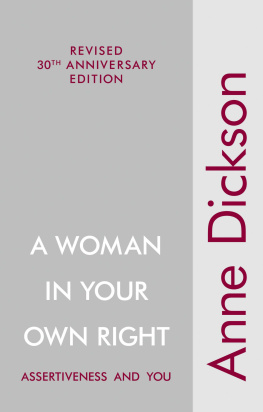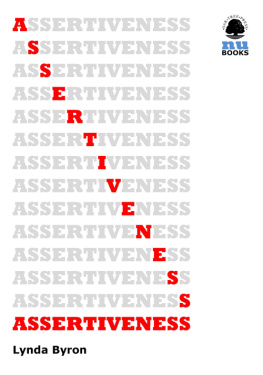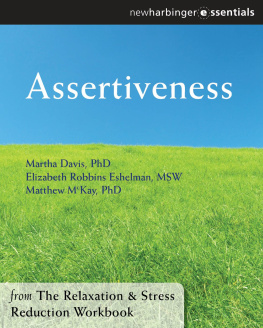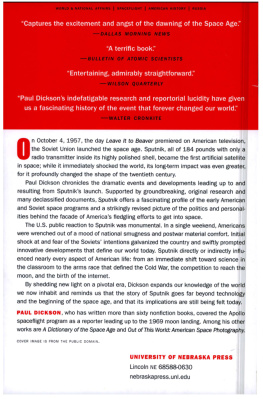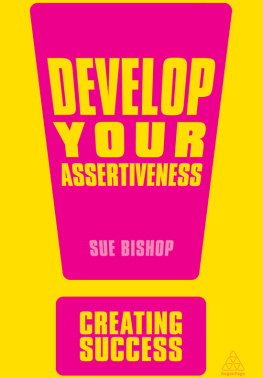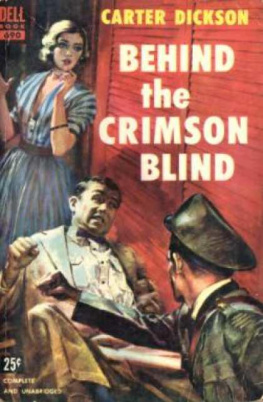Anne Dickson - A woman in your own right: assertiveness and you
Here you can read online Anne Dickson - A woman in your own right: assertiveness and you full text of the book (entire story) in english for free. Download pdf and epub, get meaning, cover and reviews about this ebook. year: 2012, publisher: Quartet Books, genre: Home and family. Description of the work, (preface) as well as reviews are available. Best literature library LitArk.com created for fans of good reading and offers a wide selection of genres:
Romance novel
Science fiction
Adventure
Detective
Science
History
Home and family
Prose
Art
Politics
Computer
Non-fiction
Religion
Business
Children
Humor
Choose a favorite category and find really read worthwhile books. Enjoy immersion in the world of imagination, feel the emotions of the characters or learn something new for yourself, make an fascinating discovery.
- Book:A woman in your own right: assertiveness and you
- Author:
- Publisher:Quartet Books
- Genre:
- Year:2012
- Rating:5 / 5
- Favourites:Add to favourites
- Your mark:
- 100
- 1
- 2
- 3
- 4
- 5
A woman in your own right: assertiveness and you: summary, description and annotation
We offer to read an annotation, description, summary or preface (depends on what the author of the book "A woman in your own right: assertiveness and you" wrote himself). If you haven't found the necessary information about the book — write in the comments, we will try to find it.
A woman in your own right: assertiveness and you — read online for free the complete book (whole text) full work
Below is the text of the book, divided by pages. System saving the place of the last page read, allows you to conveniently read the book "A woman in your own right: assertiveness and you" online for free, without having to search again every time where you left off. Put a bookmark, and you can go to the page where you finished reading at any time.
Font size:
Interval:
Bookmark:
A Woman in Your Own Right
Anne Dickson Ph.D has degrees in psychology, mental health and environmental science. She has worked as a freelance psychologist, writer and trainer for many years and is recognised as a leading authority on womens development, assertiveness training and interactive communication. Her best-selling, widely translated AWoman in Your Own Right is still used as a core textbook for assertiveness trainers around the world.
A Woman in Your
Own Right
Assertiveness and You
ANNE DICKSON
Illustrations by Kate Charlesworth

First published in 1982 by
Quartet Books Limited
A member of the Namara Group
27 Goodge Street, London W1T 2LD
This revised edition published in 2012
Copyright Anne Dickson 1982 and 2012
The right of Anne Dickson to be identified
as the author of this work has been asserted
by her in accordance with the
Copyright, Designs and Patents Act, 1988
All rights reserved.
No part of this book may be reproduced in
any form or by any means without prior
written permission from the publisher
A catalogue record for this book
is available from the British Library
eISBN 978 0 7043 7304 4
Typeset by Antony Gray
Printed and bound in Great Britain by
T J International Ltd, Padstow, Cornwall
Contents
To those individuals wherever they are who have the vision and compassion to see and treat other human beings as their equals. It has always taken courage to resist the norms of aggression and misuse of power: today it requires much more.
I would like to acknowledge the contribution of the women I have trained over the years, both in the UK and elsewhere, many of whom have kept the free spirit of assertiveness alive in their work. They have helped to instil an authentic confidence in women and enabled them to literally find their own voices.
I would like to thank a few women in particular. Stella Salems loyalty and contribution to the general administration of Redwood in the earlier years needs to be honoured: she has long tried to persuade me to update this book. Patricia Hodgins has also given me much encouragement and support in this venture. My thanks also go to Casey Taylor for our helpful discussion and Arlene Faris for taking the time to read and comment on the first draft of this new version.
When my English publishers first approached me with a proposal to create a thirtieth anniversary edition of this book, my response was one of ambivalence: not because I personally believe that assertiveness training has become less relevant now than it was three decades ago. On the contrary, in the face of contemporary cultural values, adherence to the fundamental principles of equality and honesty seem more important than ever in a world where inequalities are glaring, dishonesty often overlooked and individual rights prioritised over compassion or a sense of responsibility for others. My initial doubts were much more to do with whether anybody would be interested in what are now largely considered out-dated and irrelevant principles.
Nevertheless we agreed to go ahead: my brief was to update the original book by removing what were obviously outdated references: to typewriters, for example, or addressing the problem of asking someone not to smoke in a restaurant. It wasnt long before I realised that I couldnt simply tweak a few details: far too much has changed in terms of the social context in which assertive principles have to be understood.
The commitment to equality, for example at the very heart of assertive behaviour has been dealt a devastating blow by the shift in social and political values throughout the last thirty years. Neo-liberal economic policies have meant a radical change in life as we know it as economic values have evolved into social values. Sports, education, medicine, politics, broadcasting, the performing arts and the media have been colonised by market values while entailing a corresponding loss of intrinsic values such as gamesmanship, teaching, healing, governing, informing, entertaining and intellectual achievement. The same economic policies have spread through the world with dramatic political and social repercussions and the absence of equality as a consequence (economic, social, access to physical resources, education and healthcare, job opportunities and life-expectancy) has been irrefutably documented.
Although it was always crucial to distinguish between an assertive and aggressive response, it is even more difficult to understand the distinction when we all now live within a society where much higher levels of aggression are countenanced as acceptable and often completely normal. One reason for this is that business has become a metaphor for life in the Western world. We are expected to be more entrepreneurial (streamlined, aggressive and profitable) in everything we do: this goal requires the most up-to-date technology, adequate resources, a high profile, the right image and cost-effectiveness. Winning takes priority which means that the ethos of competition has extended its domain from the sports arena and workplace to infiltrate even our closest relationships. Time and time again, we fail to communicate effectively because we are hampered by seeing the other person solely as potential winner or loser: every interaction becomes a contest in which the success or failure of the outcome is apparently dependent on our respective strategies.
Within this wider shift, womens roles in our culture have also altered: the current generation of young women enjoy more independence from the restraints of stereotypically female roles than their mothers did: self-expression, educational attainment and professional achievement are now far more accessible. In earlier years, the concept of the Compassion Trap, for example, was an important aspect of early training programmes and immediately identifiable to women then as a stumbling block to finding the words to make an effective refusal, i.e. to put their needs before those of others. This concept appears less relevant to younger women today who are more certain of their ground when claiming their individual rights.
How and why is this book different from the original? Although the core content remains the same, the evolution of assertiveness training during these three decades means that presenting the subject matter in 2012 is a new challenge. My own experience of teaching and training in a diverse range of contexts and cultures gives me a particular perspective on the path taken by assertiveness training: how it began, how it developed, why it gained popularity and how it eventually came to lose its essential meaning. The following brief history provides some insight into what being assertive means, and doesnt mean, today.
Assertiveness Training 19822012
A Woman in Your Own Right first came into being in 1982 in response to the demand for assertiveness training classes. Four years previously, I had taught the first class in this country and the relevance of the topic to womens lives and their consequent interest in learning the skills was immediately and overwhelmingly evident. Adult Education institutions, initially wary of being associated with any feminist agenda, were persuaded by over-subscribed classes and consistent attendance throughout the full ten weeks to open their doors more enthusiastically. Participants in these classes discovered a new concept of empowerment: one that embraced the importance of communicating feelings and recognising an essential equality with others.
Within a couple of years, the demand for classes and teachers grew exponentially and as a consequence, I established a national and later an international training association which offered a twelve month, in-depth training in assertiveness and sexuality for women who wanted to run courses within their own personal and work contexts.
Next pageFont size:
Interval:
Bookmark:
Similar books «A woman in your own right: assertiveness and you»
Look at similar books to A woman in your own right: assertiveness and you. We have selected literature similar in name and meaning in the hope of providing readers with more options to find new, interesting, not yet read works.
Discussion, reviews of the book A woman in your own right: assertiveness and you and just readers' own opinions. Leave your comments, write what you think about the work, its meaning or the main characters. Specify what exactly you liked and what you didn't like, and why you think so.

